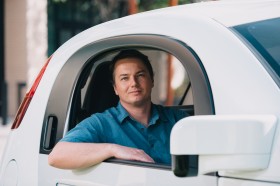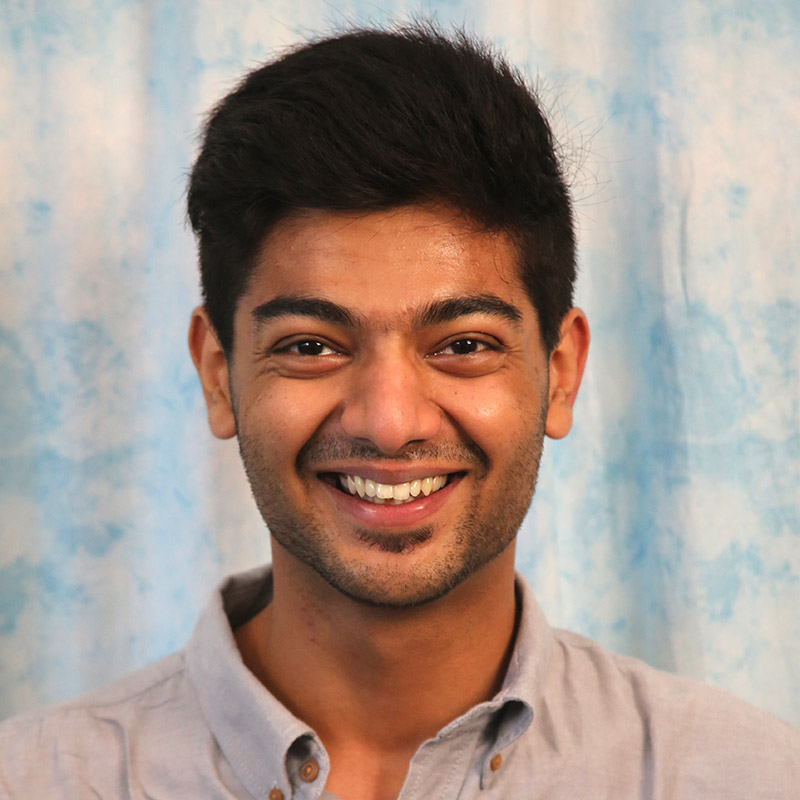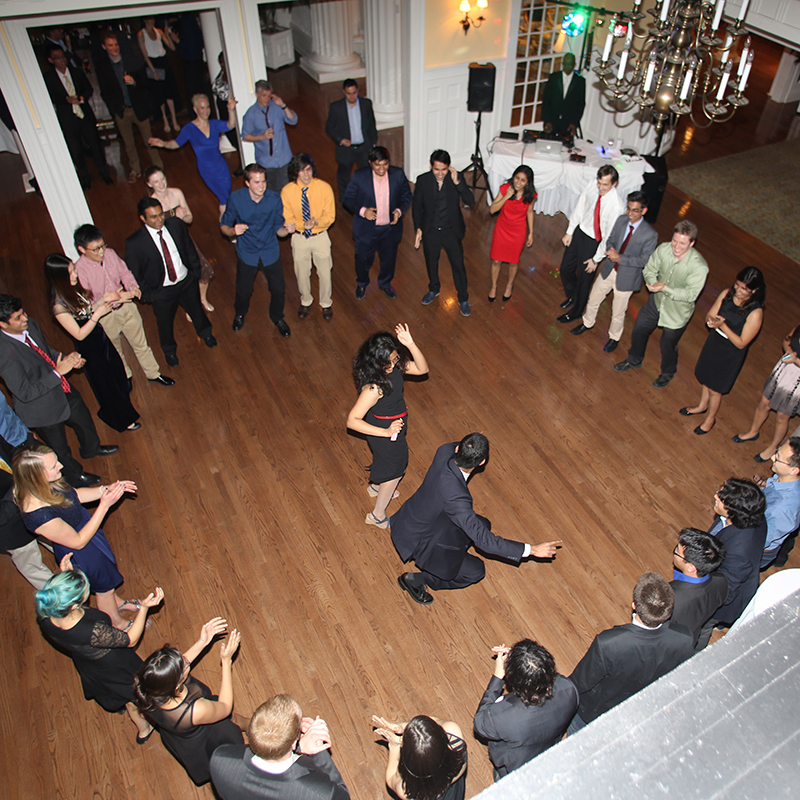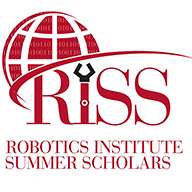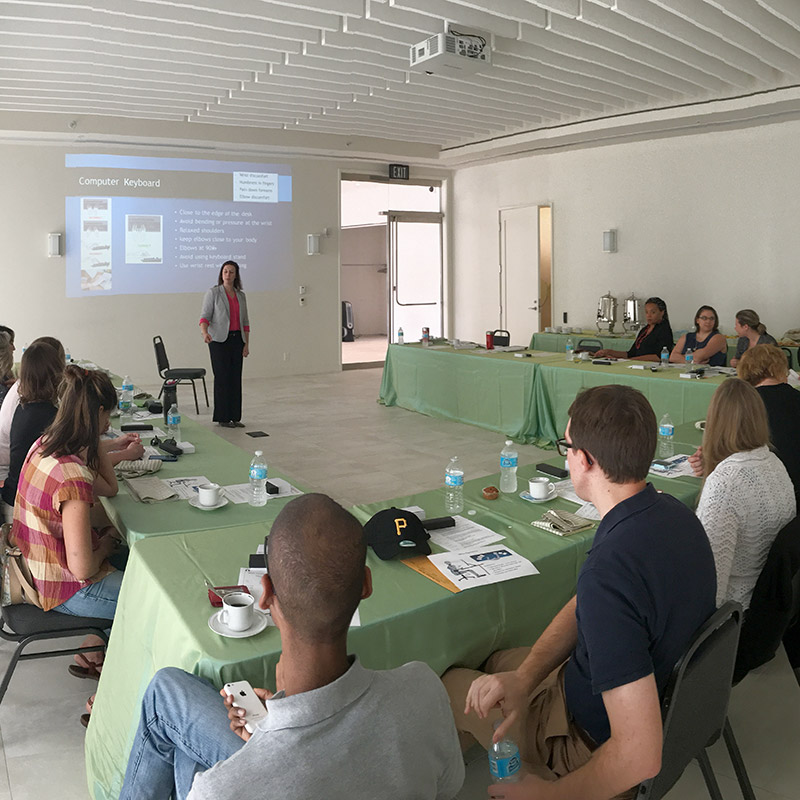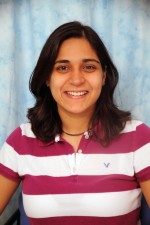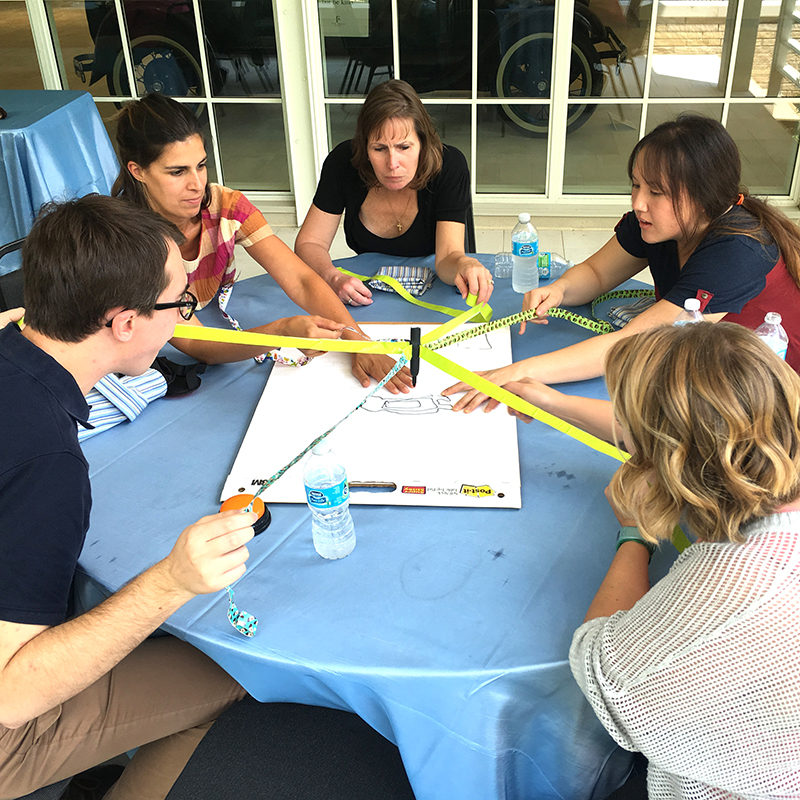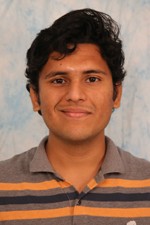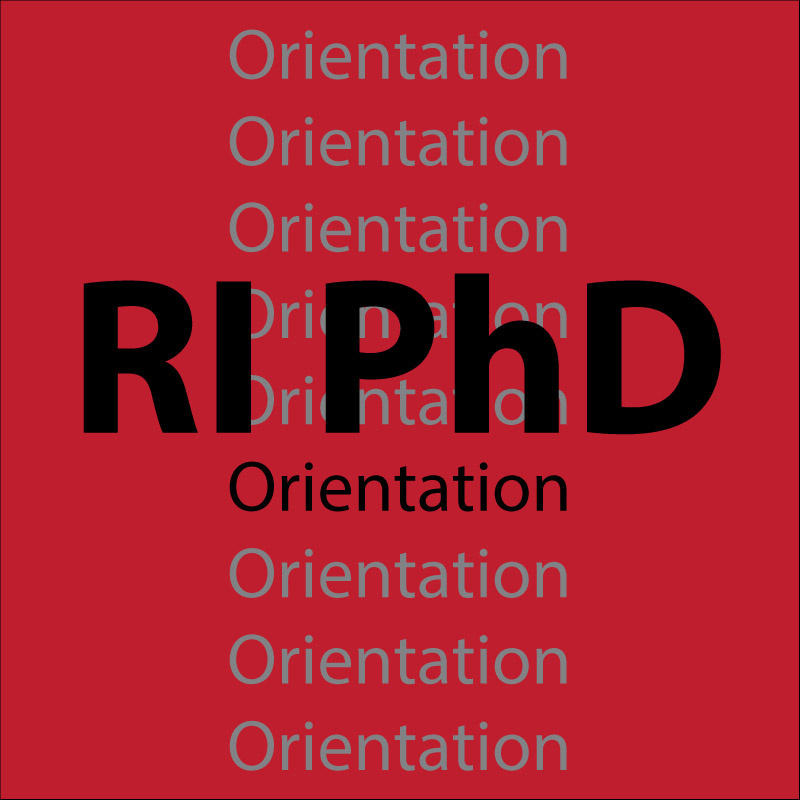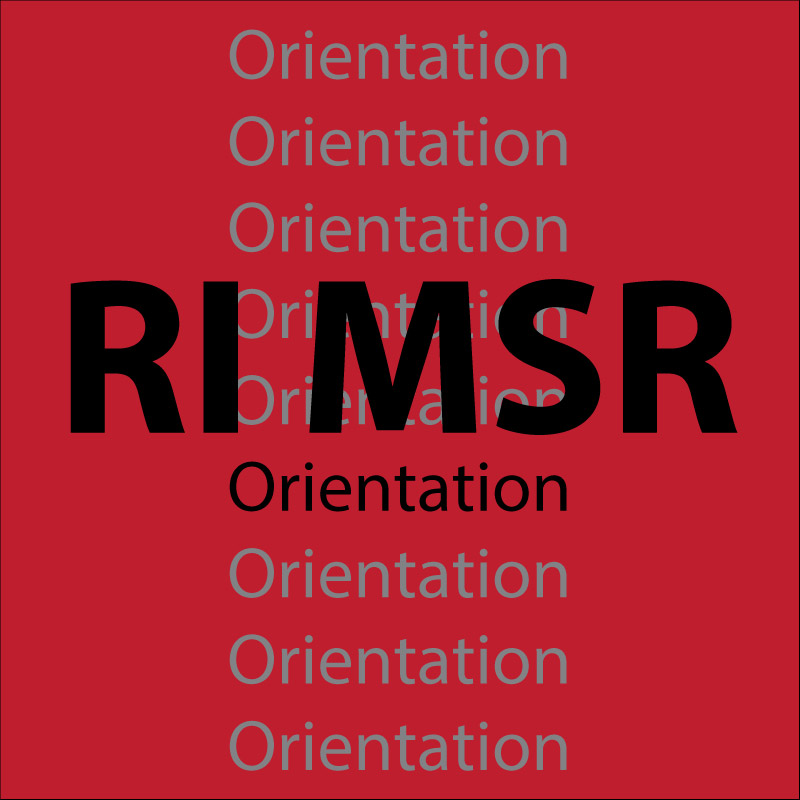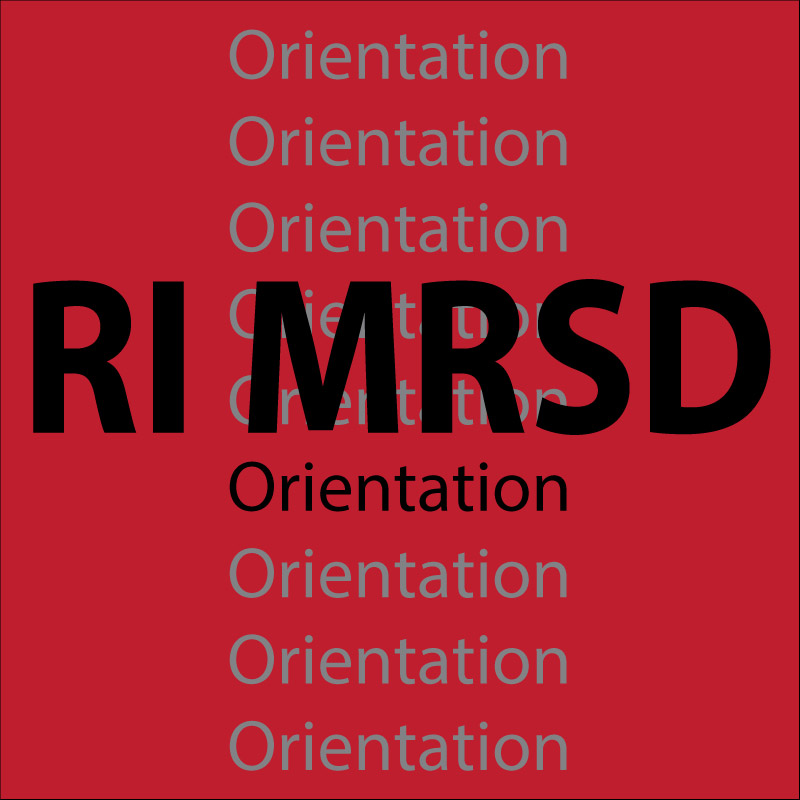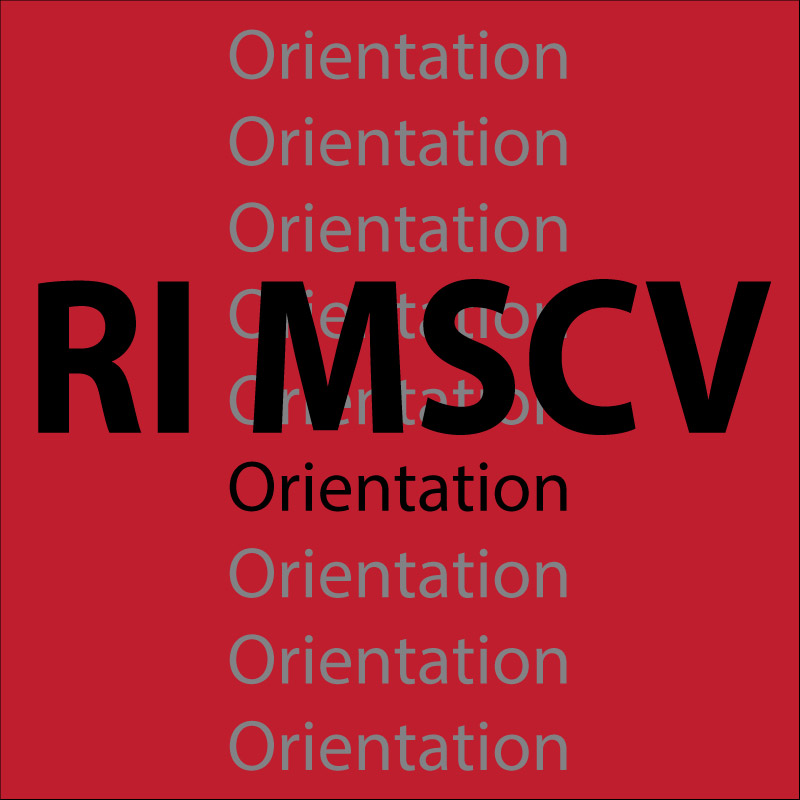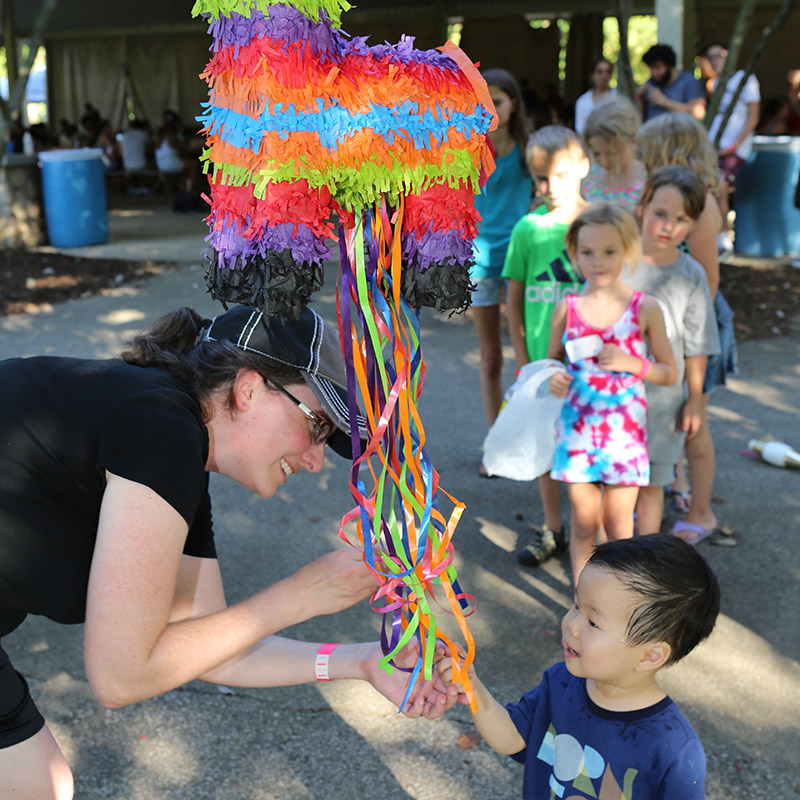Teruko Yata Memorial Lecture in Robotics
Event Location: Rashid Auditorium - 4401 Gates and Hillman CentersAbstract: SPEAKER: Chris Urmson, CEO & co-founder Aurora Title: Perspectives on Self-Driving Cars Abstract: Self-driving vehicles will save millions of lives, make cities more liveable, save resources, and transform transportation to be more accessible and enjoyable for everyone. Despite a decade of rapid advancement in the [...]
Chris Urmson: Perspectives on Self-Driving Cars – Teruko Yata Memorial Lecture in Robotics
SPEAKER: Chris Urmson, CEO & co-founder Aurora Title: Perspectives on Self-Driving Cars Abstract: Self-driving vehicles will save millions of lives, make cities more liveable, save resources, and transform transportation to be more accessible and enjoyable for everyone. Despite a decade of rapid advancement in the state-of-the-art, perception of the technology still lands somewhere between solved [...]
Visual Analysis of Dense Crowds
Event Location: Newell Simon Hall 1507Bio: Haroon Idrees is a postdoctoral researcher in the Center for Research in Computer Vision (CRCV) at the University of Central Florida (UCF). He is interested in machine vision and learning, with focus on crowd analysis, action recognition, multi-camera and airborne surveillance, as well as deep learning and multimedia content [...]
Haroon Idrees: Visual Analysis of Dense Crowds
Haroon Idrees Post Doc Associate, Center for Research in Computer Vision, University of Central Florida (UCF) Abstract Automated analysis of dense crowds is a challenging problem with far-reaching applications in crowd safety and management, as well as gauging political significance of protests and demonstrations. In this talk, I will first describe a counting approach which [...]
2017 National Robotics Week Celebration
The Robotics Institute will celebrate the eighth annual National Robotics Week on April 20, 21 & 22 with lectures, project demonstrations, the annual Mobot (mobile robot) races, a reception for RI affiliated people and NREC Industry Day. REGISTRATION IS NOW OPEN REGISTER HERE If you have any specific questions about the National Robotics Week open [...]
Sankalp Arora: Safe, Efficient Data Gathering in Physical Spaces
Sankalp Arora Ph.D. Thesis Proposal Abstract: Reliable and efficient acquisition of data from physical spaces will have countless applications in industry, policy and defense. The capability of gaining information at different scales makes Micro-Aerial Vehicles (MAVs) excellent for aforementioned applications. However, reasoning about information gathering at multiple resolution is NP-Hard and the state of the [...]
Toward Deep Geometric Image Understanding
Event Location: Newell Simon Hall 1507Bio: Jia Deng is an Assistant Professor of Computer Science and Engineering at the University of Michigan. His research focus is on computer vision and machine learning, in particular, achieving human-level visual understanding by integrating perception, cognition, and learning. He received his Ph.D. from Princeton University and his B.Eng. from [...]
Seungmoon Song: The Development, Evaluation and Applications of a Neuromechanical Control Model of Human Locomotion
Seungmoon Song Ph.D. Thesis Defense Abstract: The neural control of human locomotion is not fully understood. As current experimental techniques provide only partial and indirect access to the neural control network, our understanding remains fragmentary with large gaps between detectable neural circuits and measurable behavioral data. Neuromechanical simulation studies can help bridging these gaps. By [...]
Juan Pablo Mendoza: Regions of Inaccurate Modeling for Robot Anomaly Detection and Model Correction
Juan Pablo Mendoza Ph.D. Thesis Defense Abstract: To make intelligent decisions, robots often use models of the stochastic effects of their actions on the world. Unfortunately, in complex environments, it is often infeasible to create models that are accurate in every plausible situation, which can lead to suboptimal performance. This thesis enables robots to reason [...]
Sasanka Nagavalli: Behavior Composition in Human Interaction with Robotic Swarms
Sasanka Nagavalli Ph.D. Thesis Proposal Abstract: Robotic swarms are multi-robot systems whose global behavior emerges from local interactions between individual robots and spatially proximal neighboring robots. Each robot can be programmed with several local control laws that can be activated depending on an operator's choice of global swarm behavior (e.g. flocking, aggregation, formation control, area [...]
Robots for the social good: Identifying and addressing organizational and societal factors in the design and use of robots
Event Location: NSH 1305Bio: I am an Associate Professor of Informatics and Cognitive Science at Indiana University, Bloomington, where I founded and direct the R-House Human-Robot Interaction Lab. My work combines the social studies of computing, focusing particularly on the design, use, and consequences of socially interactive and assistive robots in different social and cultural [...]
Selma Sabanovic: Robots for the social good: Identifying and addressing organizational and societal factors in the design and use of robots
Selma Sabanovic Associate Professor of Informatics and Cognitive Science, Indiana University Bloomington Additional Information Host: Aaron Steinfeld Appointments: Stephanie Matvey Abstract Robots are expected to become ubiquitous in the near future, working alongside and with people in everyday environments to provide various societal benefits. In contrast to this broad ranging social vision for robotics applications, [...]
A Fast & Efficient Mission Planner for Multi-rotor Aerial Vehicles in Large, High-resolution Maps of Cluttered Environments
Abstract: Unmanned aerial vehicles have many potential applications, such as monitoring crops and inspecting infrastructure. The potential benefits are greater if the UAV is semi- or fully-autonomous, requiring only occasional human oversight or none at all. This would allow the above use cases to be performed at lower cost, during any time of day, or [...]
Interactive Scene Understanding
Abstract Despite recent progress, AI is still far from understanding the physics of the world, and there is a large gap between the abilities of humans and the state-of-the-art AI methods. In this talk, I will focus on physics-based scene understanding and interactive visual reasoning, which are crucial next steps in computer vision and AI. [...]
Dynamic 3D Reconstruction from the Crowd
Abstract: With the advent of affordable and high-quality smartphone cameras, any significant event, such as a wedding ceremony, a surprised birthday party, or a concert, can be easily captured from multiple of cameras. Automatically organizing such large scale visual data and creating a comprehensive 3D scene model for event browsing is an unsolved problem. State [...]
Robotic Manipulation under clutter and uncertainty with and around people
Abstract Robots manipulate with super-human speed and dexterity on factory floors. But yet they fail even under moderate amounts of clutter or uncertainty. However, human teleoperators perform remarkable acts of manipulation with the same hardware. My research goal is to bridge the gap between what robotic manipulators can do now and what they are capable [...]
Mutual Information for Robust Visual Odometry
Abstract Off-the-shelf digital camera sensors often have limited dynamic range and real-world dynamic lighting changes adversely impact visual state estimation algorithms. This is because most conventional visual state estimation algorithms make the constancy of brightness assumption, wherein the intensity of a pixel is expected to be constant across small motions of a camera. However, this [...]
Measuring and Modeling Kinesic Signals in Social Communication
Abstract: Humans use subtle and elaborate body signals to convey their thoughts, emotions, and intentions. "Kinesics" is a term that refers to the study of such body movements used in social communication, including facial expressions and hand gestures. Understanding kinesic signals is fundamental to understanding human communication; it is among the key technical barriers to [...]
SLAM and 3D Reconstruction using Imaging Sonar
Abstract Underwater localization and mapping are unusually difficult problems in robotics due to the poor propagation of light through water, which prohibits receiving GPS signals underwater and using cameras to see more than a few meters in turbid water. Due to this, acoustic imaging sonars have been widely used on underwater vehicles as the primary [...]
2017 Robotics Institute Semi-formal
Please save the date! Pre-registration is required. Invitations will be sent out in April 2017. Robotics Institute members and a guest are invited to join us for our annual semi-formal. The evening will offer a reception including hot hors d'oeuvres, stations for carving, pasta, fruit, cheese, and dessert as well as hosted non-alcoholic beverages. Cash [...]
Probabilistic Approaches for Pose Estimation
Abstract: Pose estimation is central to several robotics applications such as registration, manipulation, SLAM, etc. In this thesis, we develop probabilistic approaches for fast and accurate pose estimation. A fundamental contribution of this thesis is formulating pose estimation in a parameter space in which the problem is truly linear and thus globally optimal solutions can [...]
Ada J. Zhang: Personalized Human Motion Classification
Abstract: Algorithms for human motion understanding have a wide variety of applications, including health monitoring, performance assessment, and user interfaces. However, differences between individual styles make it difficult to achieve robust performance, particularly for individuals who were not in the training population. We believe that adapting algorithms to individual behaviors is essential for effective human [...]
Robotics Institute Summer Scholars Program (RISS) Orientation
By Invitation Only - Welcome RI Summer Scholars! 11 weeks of immersive research, learning, and exchange!
Robotics Institute Summer Scholars Program (RISS) Lunch Workshop
By Invitation Only - Weekly lunch workshop for all RISS students.
Robotics Institute Administrative Support Staff Monthly Lunch Meeting
By Invitation Only - All Robotics Institute administrative support staff are invited to join us for our monthly lunch meeting.
Robotics Institute Summer Scholars Program (RISS) Lunch Workshop
By Invitation Only - Weekly lunch workshop for all RISS students.
Robotics Institute Summer Scholars Program (RISS) Lunch Workshop
By Invitation Only - Weekly lunch workshop for all RISS students.
Robotics Institute Summer Scholars Program (RISS) Lunch Workshop
By Invitation Only - Weekly lunch workshop for all RISS students.
Reasoning About Spatial Patterns of Human Behavior During Group Conversations with Robots
Abstract: The goal of this dissertation is to develop computational models for robots to detect and sustain the spatial patterns of behavior that naturally emerge during free-standing group conversations with people. These capabilities have often been overlooked by the Human-Robot Interaction (HRI) community, but they are essential for robots to appropriately interact with and around [...]
Acting under Uncertainty for Information Gathering and Shared Autonomy
Abstract: Acting under uncertainty is a fundamental challenge for any decision maker in the real world. As uncertainty is often the culprit of failure, many prior works attempt to reduce the problem to one with a known state. However, this fails to account for a key property of acting under uncertainty: we can often gain [...]
Robotics Institute Summer Scholars Program (RISS) Lunch Workshop
By Invitation Only - Weekly lunch workshop for all RISS students.
Robotics Institute Administrative Support Staff Monthly Lunch Meeting
By Invitation Only - All Robotics Institute administrative support staff are invited to join us for our monthly lunch meeting. Speaker/topic to be announced.
Active Illumination for the Real World
Abstract: Active illumination systems use a controllable light source and a light sensor to measure properties of a scene. For such a system to work reliably across a wide range of environments it must be able to handle the effects of global light transport, bright ambient light, interference from other active illumination devices, defocus, and [...]
Situational Awareness and Mixed Initiative Markup for Human-Robot Team Plans
Abstract: As robots become more reliable and user interfaces (UI) become more powerful, human-robot teams are being applied to more real world problems. Human-robot teams offer redundancy and heterogeneous capabilities desirable in scientific investigation, surveillance, disaster response, and search and rescue operations. Large teams are overwhelming for a human operator, so systems employ high level [...]
Robotics Institute Summer Scholars Program (RISS) Lunch Workshop
By Invitation Only - Weekly lunch workshop for all RISS students.
Robotics Institute Summer Scholars Program (RISS) Lunch Workshop
By Invitation Only - Weekly lunch workshop for all RISS students.
High-Fidelity Perceptual Representations via Hierarchical Gaussian Mixture Models
Event Location: NSH 1507Bio: Shobhit Srivastava is an M.S. student in the Robotics Institute at Carnegie Mellon University, advised by Prof. Nathan Michael. The primary focus of his research is to enable high-fidelity and efficient multimodal environment modeling on mobile autonomous systems to enable efficient inference with respect to the environment. He previously received his [...]
Robotics Institute Summer Scholars Program (RISS) Lunch Workshop
By Invitation Only - Weekly lunch workshop for all RISS students.
State Estimation and Localization for ROV-Based Reactor Pressure Vessel Inspection Using a Pan-Tilt-Zoom Camera
Event Location: NSH 1305Bio: Timothy E. Lee is a M.S. in Robotics graduate student at Carnegie Mellon University, advised by Prof. Nathan Michael. Timothy's field robotics research seeks to enable robust, efficient, and autonomous inspection of critical infrastructure. Specifically, he is working towards improving the efficiency of nuclear power by enabling camera-based navigation of underwater [...]
2017 Robotics Institute Administrative Support Staff Retreat
By Invitation Only - Please save the date and plan to join us for the Robotics Institute Staff Retreat to be held Friday, August 4, 2017. More information for the day meeting agenda will follow once it becomes available.
Robotics Institute Summer Scholars Poster Session and Research Showcase
Come celebrate with the scholars. Refreshments will be served. Many thanks to RISS mentors, partners, and sponsors for making this undergraduate research program possible.
Discovering and Leveraging Visual Structure for Large-scale Recognition
Abstract: Our visual world is extraordinarily varied and complex, but despite its richness, the space of visual data may not be that astronomically large. We live in a well-structured, predictable world, where cars almost always drive on roads, sky is always above the ground, and so on. As humans, the ability to learn this structure [...]
Detecting and Grasping Sorghum Stalks in Outdoor Occluded Environments
Event Location: GHC 6501Bio: Merritt Jenkins is an M.S. student in the Robotics Institute at Carnegie Mellon University, advised by Dr. George Kantor. Merritt's field robotics research focuses on perception and intelligent manipulation of plants in outdoor environments, enabling plant breeders and geneticists to make better-informed breeding decisions. Prior to CMU, Merritt received a B.E. [...]
Adaptive Spectroscopic Exploration Driven by Science Hypotheses for Geologic Mapping
Event Location: NSH 1507Bio: Alberto Candela Garza is an M.S. in Robotics student at Carnegie Mellon University, advised by Prof. David Wettergreen. Alberto is affiliated to the Field Robotics Center and is interested in science autonomy for planetary rovers. Prior to CMU, Alberto received a B.S. in Mechatronics Engineering and a B.S. in Industrial Engineering [...]
Deliberative Perception
Abstract: A recurrent and elementary robot perception task is to identify and localize objects of interest in the physical world. In many real-world situations such as in automated warehouses and assembly lines, this task entails localizing specific object instances with known 3D models. Most modern-day methods for the 3D multi-object localization task employ scene-to-model feature [...]
Robotics Institute PhD Orientation
ROBOTICS 2017 ORIENTATION SCHEDULE
SCS Faculty Orientation
SCS Faculty Orientation
SCS Faculty Orientation
2017 Robotics Institute Picnic – location changed to Vietnam Veteran’s Pavilion @ Schenley Park
By Invitation Only - SOCIALIZE, EAT, DRINK & BE MERRY! It's that time of year again and all folks affiliated with the Robotics Institute are invited along with their families to the 2017 Robotics Institute Picnic. Please note our new location, date and time. Due to flooding at RiverPlex that has closed the park for [...]
Sven Koenig: Progress on Multi-Robot Path Finding
Abstract Teams of robots often have to assign target locations among themselves and then plan collision-free paths to their target locations. Examples include autonomous aircraft towing vehicles and automated warehouse systems. For example, in the near future, autonomous aircraft towing vehicles might tow aircraft all the way from the runways to their gates (and vice [...]

